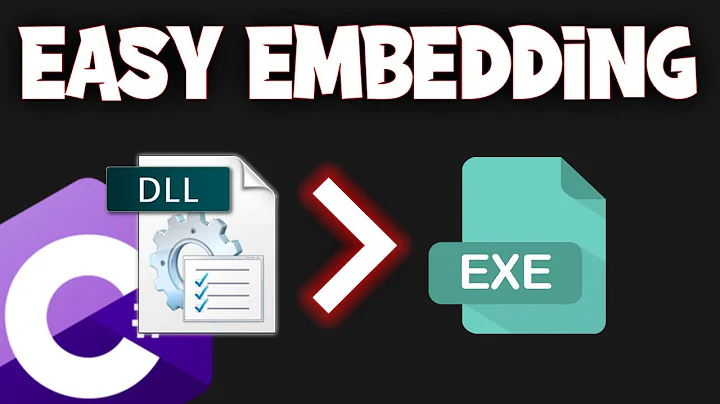Join the executable and all its libraries
Solution 1
You can copy all of its libraries from their system locations into a subdirectory of where your executable is and use patchelf, to make the executable look for its libdependencies there instead of the system lib directories.
E.g.:
relativize_libs:
#!/bin/bash -e
[ -n "$1" ] || set -- a.out
mkdir -p ./lib/ #<copy the libraries here
#use ldd to resolve the libs and use `patchelf --print-needed to filter out
# "magic" libs kernel-interfacing libs such as linux-vdso.so, ld-linux-x86-65.so or libpthread
# which you probably should not relativize anyway
join \
<(ldd "$1" |awk '{if(substr($3,0,1)=="/") print $1,$3}' |sort) \
<(patchelf --print-needed "$1" |sort) |cut -d\ -f2 |
#copy the lib selection to ./lib
xargs -d '\n' -I{} cp --copy-contents {} ./lib
#make the relative lib paths override the system lib path
patchelf --set-rpath "\$ORIGIN/lib" "$1"
(I believe that unlike LD_LIBRARY_PATH hacking, this should work with setuid executables too).
After that, all you've got to do is move that ./lib directory along with the executable.
Solution 2
Depends on what you mean by "join". The best way is to recompile the original source as a static binary.
However, you can include all of the libraries in a subdirectory that is controlled by the application (/usr/share/myapp for instance) and then put that directory in the library search order. One way to do this would be (in Linux) to use the LD_LIBRARY_PATH:
LD_LIBRARY_PATH=/usr/share/myapp/lib:/usr/local/lib:/usr/lib/i686-linux-gnu:/lib/i686-linux-gnu
In Linux, you can modify the /etc/ld.so.conf file to do the same thing - and Ubuntu adds the *.conf files in the /etc/ld.so.conf.d directory also.
Solution 3
Converting bunch of shared objects and a shared-lib ELF executable to one statically linked blob is not straight-forward.
The executable archive you mentioned might be possible. Assuming that by 'executable archive' you meant a file that when run un-zips itself and runs a program without dependencies on other files on the system.
This can be done quite simply using shell script and bunch of utilities found in most linux distros (However it adds dependencies on shell and the utilties). Making an ELF 'executable archive' might be much more involved although the principles are the same. If you expect your version of the program to be executed frequently, you should modify the script to 'install' it on to the users system as indicated by David and janneb.
An example using shell script based executable archive
Collect the files you need for the execution, an example using cat program would
have the following:
fachas_cat_files/cat
fachas_cat_files/lib/libc.so.6
Base64 encode the tgz file and make it cat.b64, can be done like this after
setting up your fachas_cat_files directory.
tar -cz fachas_cat_files | base64 > cat.b64
This makes a representation of the tar file with printable characters so it can be included in the script.
Note down the md5sums of the files you are packaging, which you use to verify whether the untarred files are your own or not, in the shell script.
find fachas_cat_files/ -type f -exec md5sum {} \; > cat.md5
Make a shell script like the following and name it your new "archive" program.
#!/bin/bash
TEMP_DIR=/tmp
# Check Md5sum
md5sum -c --quiet >/dev/null 2>&1 <<EOF
--- Paste contents of cat.md5 here. ---
EOF
# Untar from base64 encoded tarball.
test $? -eq 0 || base64 -d <<EOF | tar -xz -C ${TEMP_DIR}
--- Paste contents of cat.b64 here. ---
EOF
# Execute the binary.
LD_LIBRARY_PATH=${TEMP_DIR}/fachas_cat_files/lib/ ${TEMP_DIR}/fachas_cat_files/cat $*
# Optionally remove the temporary files, if you do, the whole md5sum set of steps is
# not necessary.
# rm -fr ${TEMP_DIR}/fachas_cat_files
Related videos on Youtube
Admin
Updated on September 18, 2022Comments
-
 Admin over 1 year
Admin over 1 yearLets say I have a
/bin/catexecutable that uses the following shared libraries:linux-vdso.so.1 libc.so.6 /lib64/ld-linux-x86-64.so.2Is it possible to somehow "join" that stuff together (executable archive or something like that)?
I don't have the code of the program I want to do that to, so I can't just compile it with -static flag.
-
Daniele about 12 years+1. For clarification, I believe you'd have to recompile the original binary as a static binary.
-
Mei about 12 yearsNope. Just set up the library search path as desired and be done with it.
-
Bklyn over 6 yearsNice work! The "join" inputs must be sorted, so you should pipe the ldd and patchelf outputs both through sort.




